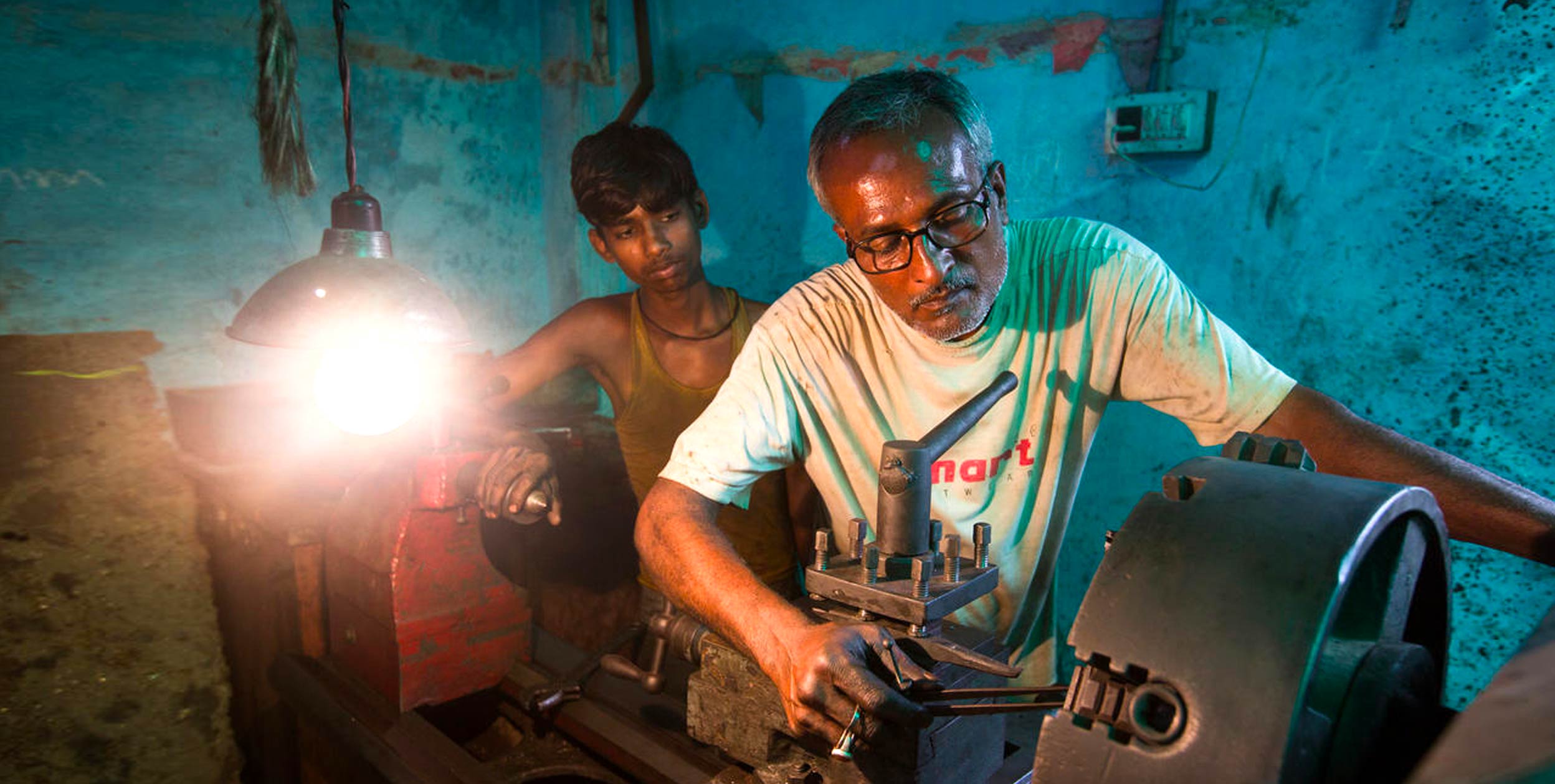our mission
To forge an actionable consensus among leading investors, utilities, and policy-makers that lays out a viable pathway for providing electricity services to hundreds of millions of under-served homes and businesses more quickly and more cost-effectively than the current trajectory.
Electrification underpins all modern economies and, in the 21st century, is indispensable for driving poverty reduction and economic development. Despite significant progress, 800 million people lack access to electricity, and many hundreds of millions more struggle with erratic and limited service.
Many countries, particularly in sub-Saharan Africa, continue to see woefully low levels of generation and network infrastructure. Moreover, the sufficiency, reliability, and affordability of power available to existing customers are often inadequate. And even when connections are made, usage is extremely low, and electrification fails to lift people out of poverty. Fortunately, we now see a confluence of factors that offer a real possibility to dramatically accelerate the achievement of universal electricity access even before the 2030 target under United Nations Sustainable Development Goal 7.
We stand today at the cusp of a transformative moment in rural and last-mile productive-use electrification, where a coordinated approach to grid and off-grid planning and investment has the potential to unlock new public-private partnerships that can dramatically bend the curve on ending energy poverty. Indeed, with new data analytics capabilities, rapid technological shifts, and increased openness within the public and private sectors, we have an unprecedented opportunity to advance integrated planning and investment models to accelerate expansion of energy access for hundreds of millions of people.
The Global Commission to End Energy Poverty will work to achieve a consensus among its diverse members as to the challenges facing countries at different stages of electrification, and to recommend a set of coordinated actions that should be taken to overcome them.

the commission
The Global Commission to End Energy Poverty comprises utilities, off-grid companies, multilateral development banks, academics, and leaders from across the electricity and development sectors. It operates under the joint chairmanship of the Rockefeller Foundation President Dr. Rajiv J. Shah; former U.S. Secretary of Energy Ernest Moniz; and Africa Development Bank President, Dr. Akinwumi Adisina. They oversee the work of a research team led by the MIT Energy Initiative Deputy Director Robert Stoner and MIT visiting professor Ignacio Perez-Arriaga.






.jpg)


